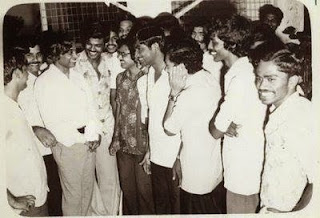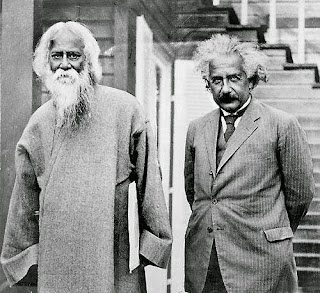
After a journey of over 10 months, India’s Mars Orbiter Mission (MOM) arrived at Mars on Wednesday, 24 September 2014 – following an insertion burn that was confirmed at 7:30am India Standard Time (02:00 UTC; 20:00 EDT in the U.S. on Tuesday, 23 Sept.) – to continue what has so far been a successful technology demonstration mission to showcase India’s entry in the realm of interplanetary research.
Mars Orbiter Mission history:
Beginning as a feasibility study in 2010, the Mars Orbiter Mission (MOM) was green lit by the Indian government on 3 August 2012 following completion of a $21 million series of studies surrounding the mission.

With approval and appropriations in hand, the Indian Space Research Organisation (ISRO) undertook an expedited 15 month construction process on the spacecraft, aiming for a target launch date of 28 October 2013.
The launch date was calculated to meet the trans-Mars injection requirements needed to place MOM into the correct heliocentric Mars transfer orbit.
These calculations included the location of the launch facility in India, the desired orbital insertion parameters at Mars, and the orbital positions of Earth and Mars vs. the location where Mars would be at the time of MOM’s arrival.
Construction on MOM was successfully completed on schedule on 2 October 2013, and the spacecraft was shipped to its launch site in Sriharikota.

There, MOM was integrated on top of its PSLV-XL (Polar Satellite Launch Vehicle) rocket – which had been under assembly since 5 August.
The use of the PSLV-XL rocket was a change from the original mission proposal which called for the use of the more-powerful Geosynchronous Satellite Launch Vehicle (GSLV).
However, the GSLV had failed twice in 2010, and a fix to the root cause of the issue was not available by the time MOM needed to launch in October 2013.
Not wanting to delay the mission until 2016 (when the next Mars launch window would open), the ISRO decided to put MOM atop the less-powerful PSLV rocket in its XL variant – six stretched solid rocket motors using 12 tons of solid propellant instead of the 9 tons used in the standard PSLV variant.
Rather, the craft would have to launch into Earth orbit and then perform a series of orbit raising maneuvers designed to increasingly raise the its apogee while using Earth’s gravity to sling-shot it into the correct Mars transfer orbit.The switch in launch vehicle, however, meant that MOM could no longer be launched directly into a Mars transfer orbit.
As launch preparations continued, MOM’s launch date was realigned from 28 October to 5 November 2013 because of the delayed arrival of a necessary telemetry ship at the Fiji Islands.

On 5 November 2013, the MOM mission lifted off right on time at 09:08 UTC from First Launch Pad at the Satish Dhawan Space Centre. Over the next 42 minutes, the PSLV-XL inserted MOM into Earth orbit, a process completed at 09:50 UTC.
With MOM’s successful launch, India began its first interplanetary mission.
The day following launch, a series of four planned orbit raising maneuvers began, controlled by spacecraft engineers from the Spacecraft Control Center at ISRO’s telemetry, tracking and command network in Peenya, Bangalore.

Of the four planned maneuvers, the first was a 416 second firing of the spacecraft’s liquid engine, the second a 570.6 second burn, and the third a 707 seconds burn.
At this point, MOM’s apogee was 71,636 km.
During the fourth burn, an under burn prevented the spacecraft’s apogee from reaching the planned 100,000 km. Instead, MOM was in a 78,276 km apogee orbit.
The resulting under burn mandated the addition of a fifth and sixth orbit raising maneuver to boost the spacecraft to an apogee of 192,874 km.
With the needed apogee achieved, spaceflight controllers initiated a 23 minute engine firing maneuver on 30 November 2013 at 19:19 UTC to place MOM into a heliocentric transfer orbit to the red planet.
Cruise to Mars:
Since leaving Earth orbit, a total of three trajectory course maneuvers have been performed to ensure that MOM is aligned into the proper trajectory for Martian arrival.
On 22 September at 09:00 UTC, spacecraft controllers successfully fired the 440N liquid apogee motor for 3.9 seconds.
The test firing confirmed the engine’s viability for planned orbital insertion operations 41 hours later.
Mars Orbital Insertion:
As MOM approached Mars for orbital insertion, the spacecraft reoriented itself to align its thrust vector with the craft’s line of travel.

Once in the proper orientation, MOM, already under the influence of Mars’ gravity, passed into the shadow of Mars.
This entry into the Martian shadow occurred five minutes before the start of the Mars Orbit Insertion (MOI) burn.
As the MOI burn began, MOM’s main liquid engine and eight smaller thrusters fired to begin reducing the vehicle’s velocity by 1,098.7 m/s.
As this burn began, the spacecraft moved behind Mars as viewed from the telemetry and tracking stations on Earth, thereby severing the radio communications link between the spacecraft and ground controllers.
The duration of the mission-critical MOI burn occured while communications with the spacecraft were blocked.
After the MOI burn:
Once the MOI burn was completed, the spacecraft began reorienting itself to point its main communications antenna toward the location where Earth will be when the spacecraft emerged from the communications blackout period.

With MOI burn successfully accomplished, MOM, at 07:30 IST (02:00 UTC; and 20:00 EDT on 23 Sept.), entered a highly elliptical orbit around the red planet.
This elliptical orbit will give MOM an orbital characteristic of 80,000 x 423 km and an orbital period of 75.8 Earth hours.
Once a stable orbit is achieved, the bulk of the mission’s primary objectives will be realized.
Stemming from the notion that this is a technology demonstration flight, the core concepts of the Mars Orbiter Mission are, according to ISRO: the design and realization of a Mars orbiter with a capability to preform Earth-bound maneuvers, cruise phase of 300 days, Mars orbit insertion/capture, and on-orbit phase operations at Mars.
Furthermore, the mission is designed to demonstrate India’s capability to perform deep space communication, navigation, mission planning, and management; and incorporate autonomous features to categorize and handle contingency situations.

In fact, so much is this mission one of technical demonstration that actual scientific observation of Mars is listed as a secondary objective.
Nonetheless, if all goes according to plan, once MOM enters orbit of Mars, the secondary mission objectives will be realized, too, with MOM exploring the Martian morphology, surface features, mineralogy, and atmosphere.
In fact, there is even the added benefit of working, after the fact, with NASA’s newly arrived MAVEN spacecraft in a post-data collection sharing of the information recorded by both spacecraft over the same period of time.
In all, the mission has already demonstrated India’s ability to perform in deep space; even more so, with orbital insertion of MOM achieved, India became only the fourth nation/space program to reach Mars (behind the former Soviet Union, NASA, and the European Space Agency).
Source:Nasa




























